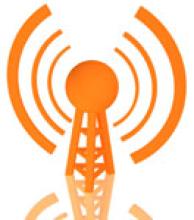Ranking Broadband Stimulus Applications in Minnesota
Our focus on the broadband stimulus is almost entirely on last-mile infrastructure because it is the most challenging and expensive problem to solve before all Americans will have affordable access to the broadband networks they need in the modern era. As we are most familiar with Minnesota, we decided to take an in-depth look on who is proposing what projects in our state.
Total Infrastructure Grants Requested for Last Mile solely in MN: at least $240 million
Total Infrastructure Loans Requested for Last Mile solely in MN: at least $85 million
Groups seeking stimulus funds to deliver last-mile broadband access in Minnesota have asked for hundreds of millions of dollars. By my tally, some 17 applicants are seeking to serve Minnesota with last-mile access (I threw out applications pertaining to middle mile infrastructure, digital divide, and those last-mile projects that combine Wisconsin and North Dakota areas) have requested some $240 million in grants and $85 million in loans.
If one assumes that the total amount of money is divided evenly among the states, this is somewhere around 3x as much stimulus money that will be awarded to Minnesota applicants over the course of the multiple rounds of funding.
At some point, this list will have to be winnowed and prioritized, so let's delve into it. All applications still must survive the peer review process (ensuring they met NTIA/RUS requirements), the incumbent challenges (incumbents can veto applications by showing that targeted areas already have broadband advertised to them), and the prioritization of surviving projects by each state (no one seems sure of how this will happen in Minnesota, our Governor is too busy not running for President in 2012).
There are two applications that should be jettisoned immediately, Arvig Telephone Company and Mid-State Telephone Company, both of which are owned by TDS Telecom.



